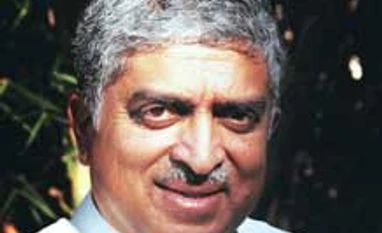In the United States, could someone who doesn’t know English become a senator or a Congressman ?
Closer home, could a non-Tamil speaker in Sri Lanka win an election from –say – Jaffna ? Could a non-Gorkhali speaking person win from the hills of Nepal ? Could a person who knew only Urdu and not Bangla win from any constituency at all in Bangladesh ?
And yet, when you look around, there are so many politicians in India who manage to win election after election aspiring and promising to represent people whose language they cannot speak.
More From This Section
Take Naveen Patnaik. When he started out as a politician he couldn’t speak two words of Odiya. The joke was that his French was better than his Odiya. But as he could not address the tribals of Koraput and Kalahandi in French, he made a sincere attempt to learn the language in which virtually all of his constituents converse. After his first five years, he hired a teacher to teach him Odiya. Patnaik learnt only a little Odiya (which is not, by the way, such a difficult language to learn) but his teacher became an expert on intrasitive verbs in French.
And yet, this has not affected his political fortunes in the least bit. Patnaik has been Chief Minister of Odisha thrice and could get a fourth term. He trots up to election meetings, says a few words in broken Odiya and lets his colleagues and candidates do all the hard work. And if there are questions, he gestures to others on the stage to answer them…
Really makes you wonder what Indian democracy is all about, doesn’t it?
Omar Abdullah has a working knowledge of Urdu, which is spoken widely in the Kashmir valley. But he can’t speak the local Kashmiri – or Koshur, as it is known - doesn’t know Dogri and understandably canot speak Ladakhi. Koshur is a lovely-sounding, incredibly evocative language that hasn’t got its proper place in Kashmir because it isn’t taught in schools and no textbooks are available, for reasons best known to the government. Yet, the language is described as “overwhelmingly the language of personal and in-group communication. It is the medium of dreams, mental arithmetic and reflection, of communication within the family, with friends and in market places, in places of worship etc.'' Why on earth would someone who has the opportunity to learn the language, opt not to learn it ? The one unsuccessful election that Sushma Swaraj fought from Bellary inspired her to learn Kannada and she can now understand the language though she may not be able to speak it.
Nandan Nilekani is huffing and puffing with Kannada that he speaks laboriously and slowly.If only they spoke Konkani (his mother-tongue) in Bangalore! He’s done a lot more in life than the above-mentioned two and probably deserves a break. But still, isn’t it strange that Sonia Gandhi, in her heavily accented Hindi, should have managed two terms in government for her party?
Considering that GM Banatwalla who couldn’t speak a full sentence in Malayalam and used to campaign in English still won seven times from the Ponnani constituency in Kerala, each time with a margin higher than before, suggests that clearly language is just one of the issues that makes up voters’ minds. And yet, isn’t there something sad and pathetic about candidates asking to be voted into power, unable to do it in the language of those who are going to vote for him/her?
)